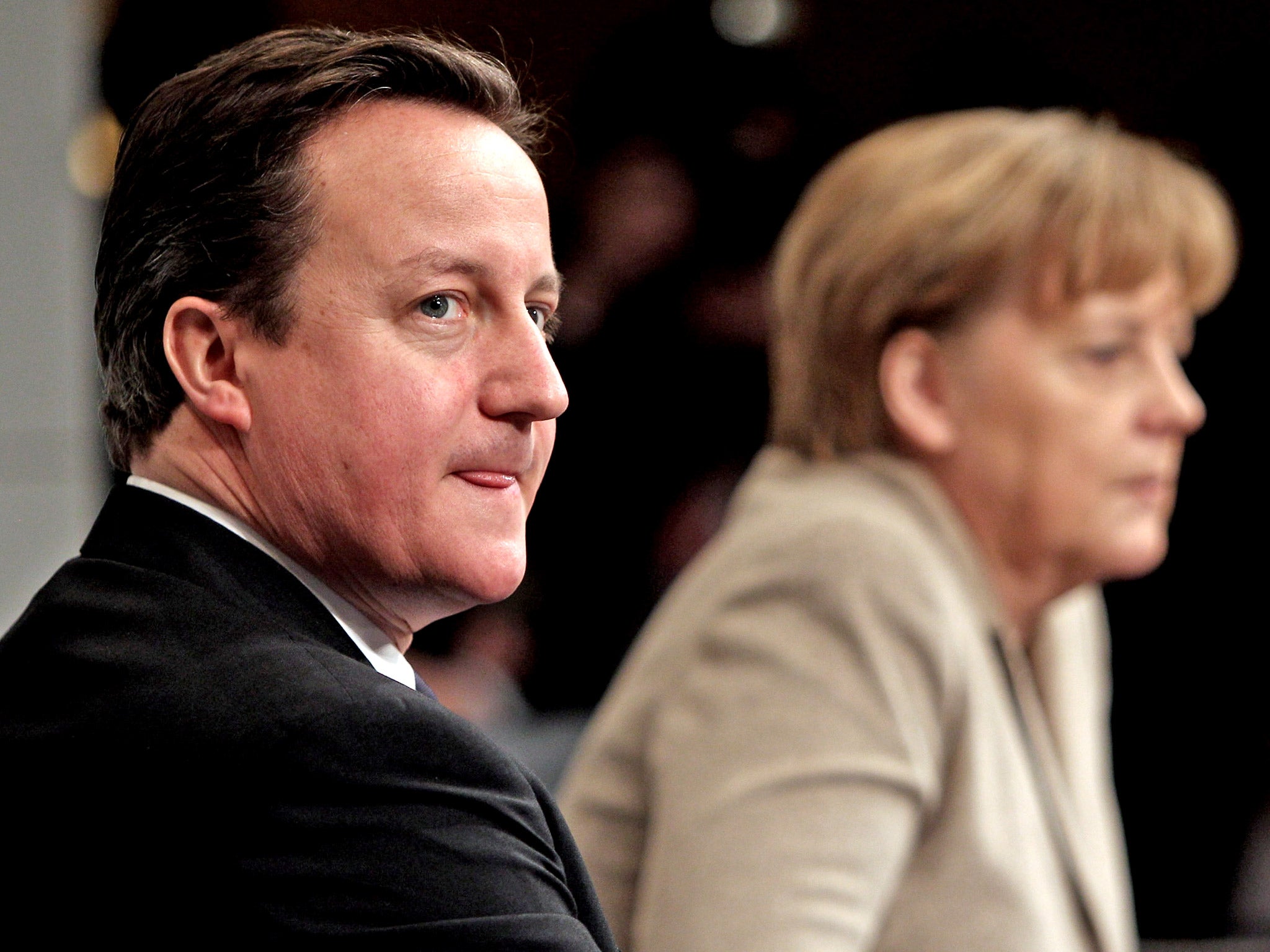Ditch austerity, Angela Merkel and David Cameron are told
EU leaders meeting in Brussels are under pressure from growing popular anger

As popular discontent spreads across Europe, David Cameron and Angela Merkel will come under pressure from other EU leaders tomorrow to signal an end to the “all-austerity” approach to the economic crisis.
European leaders meeting in Brussels tomorrow and Friday are confronted with a political vacuum in Italy, intractable crises in Spain and Greece and worrying signs of a renewed economic slide in Britain and France. Above all, they are confronted with growing popular anger at the EU policy of curing recession with austerity.
Mr Cameron and, above all, the German Chancellor Ms Merkel will be urged to agree a summit statement accepting a more softly-softly approach to cuts in public spending in the eurozone and the wider European Union. The language is likely to be cautious and will not commit Mr Cameron to any change in the Coalition’s austerity policies in Britain.
The draft conclusions for the summit call for “an appropriate mix of expenditure and revenue measures, including short-term targeted measures to boost growth and jobs, particularly for the young”. The communiqué also urges governments to give priority to “growth-friendly investment.”
There may also be concessions on the official EU targets for state deficit-cutting. Whether all of this amounts to a change in direction, or merely a change in presentation, remains open to question.
In a speech to the European Parliament, the European Commission President, Jose Manuel Barroso, urged countries to stick to their reform programmes. “We will not allow the momentum for the European Union’s reform to slow down,” he said.
Chancellor Merkel, facing a re-election campaign this autumn, is under domestic pressure to maintain Germany’s insistence that long-term growth can only be “bought” by painful economic medicine. She is expected, however, to agree to a form of words to satisfy France and Spain and help to ease the political deadlock in Italy.
The summit statement will, in part, amount to recognition of reality. The French President, François Hollande, finally admitted this week that, despite tax rises and spending cuts, France will fail to meet the EU target of a state deficit of 3 per cent of GDP this year. He said the final figure would probably be 3.7 per cent.
EU leaders have held a string of “crisis” summits in the last four years in which they struggled to find ways to prevent financial markets from pushing the euro over a cliff. The market pressure has receded since late last year when the European Central Bank offered open-ended support to Europe’s struggling banks.
The pressure on EU capitals now comes from popular anger against state spending cuts, low growth and rising unemployment. The industrial output of the EU as a whole fell by an alarming 0.4 per cent in January
“The situation in Italy and the latest economic statistics across Europe speak for themselves,” one senior French official said.
“We must find a more intelligent balance between reform and short-term growth.”
On the slide: European economies
Italy The economy shrank 0.9 per cent in the fourth quarter of 2012; unemployment is at a record high.
France Weak industrial output in January has led to fears that France could slip into a triple-dip recession.
Germany The economy grew in the first two years of the eurozone crisis but shrank 0.6 per cent in the fourth quarter of last year.
Greece The economy shrank 6.4 per cent in 2012. The downturn is expected to persist this year with the government and central bank projecting a fall of 4.5 per cent.
Join our commenting forum
Join thought-provoking conversations, follow other Independent readers and see their replies
Comments
Bookmark popover
Removed from bookmarks